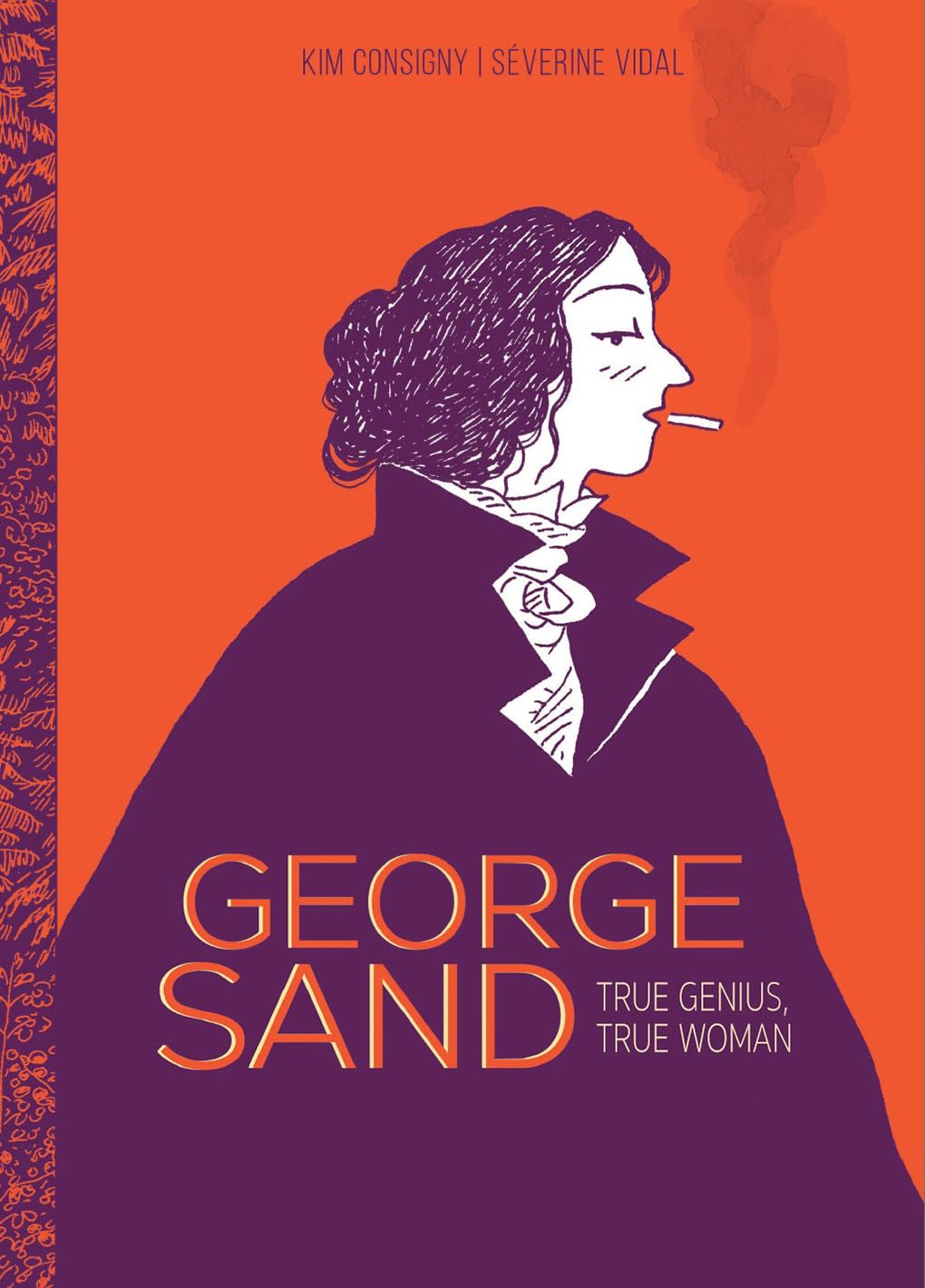Pages
▼
Thursday, 6 June 2024
George Sand: True Genius, True Woman Review (Severine Vidal, Kim Consigny)
George Sand was the pen name of 19th century French novelist/playwright Amantine Lucile Aurore Dupin, or simply “Aurore” to her nearest and dearest. George Sand: True Genius, True Woman is Severine Vidal and Kim Consigny’s comics biography of the artist and not an especially good one at that - although that might be in part to Sand not being that compelling a subject too.
I’ve known the name George Sand for a while now but knew little about the writer or her work so that’s why I wanted to read this one. I now know more about her life but not so much about her work - and I’m not encouraged to seek it out either.
She was a progressive figure for her time. Along with adopting a male pseudonym for her literary work (something many 19th century female writers - like George Eliot and the Brontes - did to be treated as equals to male writers by the publishing industry and reading public) she dressed like a man publicly too (though she was straight, unlike writers like Radclyffe Hall).
But she just wasn’t that interesting a person. She had a sad childhood - her father died when she was young, she was separated from her mother by an overbearing grandmother - and had a horrible first husband. She often stood up for the common man in her fiction and nonfiction writing. She had a relationship with the composer Chopin. All of which adds up to… meh.
So it’s informative - up to a point. According to the blurb on the back she also had a relationship with the French writer Balzac but I don’t recall reading about it here. The subtitle refers to a statement the English poet Elizabeth Barrett Browning made to describe Sand - but was she even included in the book? I’m not sure.
And then there’s the novels and plays themselves. Besides her autobiography, I couldn’t tell you what her major works were or what they were about - in a biography about a writer! They’re mentioned in passing but I feel like this is partly Vidal’s fault in failing to highlight these to the reader. Then again it could simply be that Sand’s writing hasn’t endured for a reason and so Vidal took the focus off of the writing and turned it to the writer herself. I’m not even sure what books of hers remain in print or what her legacy is (I vaguely recall Oscar Wilde praising her work somewhere but I may be mistaken).
Consigny’s black and white art is skilful and appealing although the book features an extensive cast and too many characters look alike so it’s easy to confuse who’s who and what the character dynamics are in scenes.
Despite living through tumultuous times - the 1848 revolutions, the reign of Napoleon III - those sequences just amount to Sand looking sad, writing, and telling other characters she’s sad and must write more. The part near the end with Sand and her granddaughter Nini was moving - she had a real bastard of a son-in-law - but I had an overwhelming feeling of tedium and disinterest nearly the whole time reading this book
I’m left wondering why this book was even published - what about this person and their work makes them vital or even noteworthy to have a biography about them? Sand was relevant to a certain extent in her time but today…? I’m unconvinced of her cultural importance - based on Vidal’s uninspired script at any rate, which wasn’t able to enliven the material for me.
George Sand: True Genius, True Woman is an uninteresting and drearily overlong biography of a minor cultural figure of the early-to-mid 19th century that might inform you of her life to a degree but not wholly educate you on all of the details of her life, her works or their continuing impression on contemporary art.

No comments:
Post a Comment